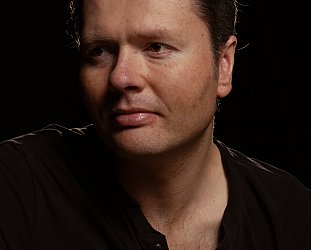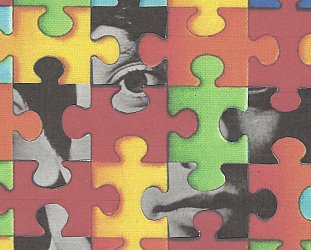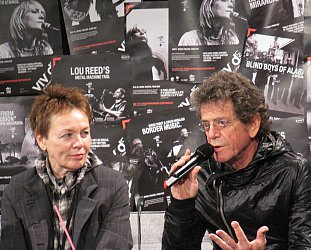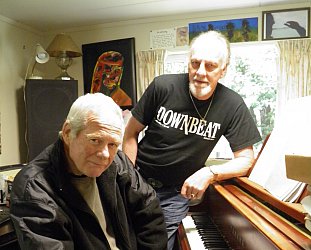Graham Reid | | 2 min read

Since 2011, Whanganui's Seth Haapu (Ngāti Porou, Ngāti Tūwharetoa, Te Atihaunui a Pāpārangi) has released three EPs and a self-titled album, winning a following for his sophisticated singer-songwriter/spiritual soul.
His 2018 piano ballad New Wave (also appearing in te reo Māori, Ngaru Hōu,) won him Kaitito Waiata Māori Autaia (Best Māori Songwriter) at the Waiata Māori Music Awards. He described it as a karakia, “an expression of thanks for all that I’ve been given . . . being grateful for the ebbs and flows of life and about diving deeper into my culture”.
His collaboration on Waitī Waitā with Maisey Rika (from her Matariki-inspired album Ngā Mata o te Ariki Tāwhirimatea) was nominated for 2021 APRA Silver Scroll (songwriting) award.
A producer (as Kēhua/ghost) and collaborator who has worked with Stan Walker, Sons of Zion and others, Haapu is a serious contender and his new album is the bi-lingual Whai Ora co-produced with Kody Nielson.
It connects with an exploration of his family's origins in Tahiti in gentle, seductive pop-framed songs – titles include Tropical, Night Sky (written with Teeks), Natural High, Return to Paradise– which are steeped in an evocation of a prelapsarian Pacific.
 The title track drifts on polished keyboards and a slightly funky bass, Tropical is catchy soul-pop and the acoustic ballad Rongoā refers to traditional Māori healing: “When nations have fallen and rivers run dry, when without warning continents collide, you lift me up, you pray for me. My remedy”.
The title track drifts on polished keyboards and a slightly funky bass, Tropical is catchy soul-pop and the acoustic ballad Rongoā refers to traditional Māori healing: “When nations have fallen and rivers run dry, when without warning continents collide, you lift me up, you pray for me. My remedy”.
When Aaradhna – the self-described “Indian and Samoan New Zealander” – released her 2016 Brown Girl album, on the title track she sang, “I'm more than the colour of my skin . . . I'm more than urban and R'n'B”, a barbed comment about those who consign Maori and Pacific artists to convenient and often marginalising categories.
When she won best urban/hip-hop album at that year's music awards – as well as best female solo artist – it showed someone hadn't been listening. She refused the award and passed it to Onehunga's hip-hop group SWIDT.
“I'm a singer. I'm not a rapper, I'm not a hip-hop artist,” she said. “It feels like I've been placed in a category for brown people."
The multi-cultural group Nesian Mystik, Theia, Tommy Nee – of Niuean heritage, like Tigi Ness, Che Fu and the Fuemana families – Teeks, Seth Haapu and many others also stand apart from that category.
Seth Haapu's time for wider recognition is long overdue outside the music industry and those already familiar with him, because Whai Ora is cultural and consciousness soul music, spiritual healing, stylish pop and – on the balmy affirmation of Natural High – a tropical escape in the middle of winter.
What it's not, is urban/R'n'B as that category has been defined.
.
You can hear and buy this album at bandcamp here







post a comment